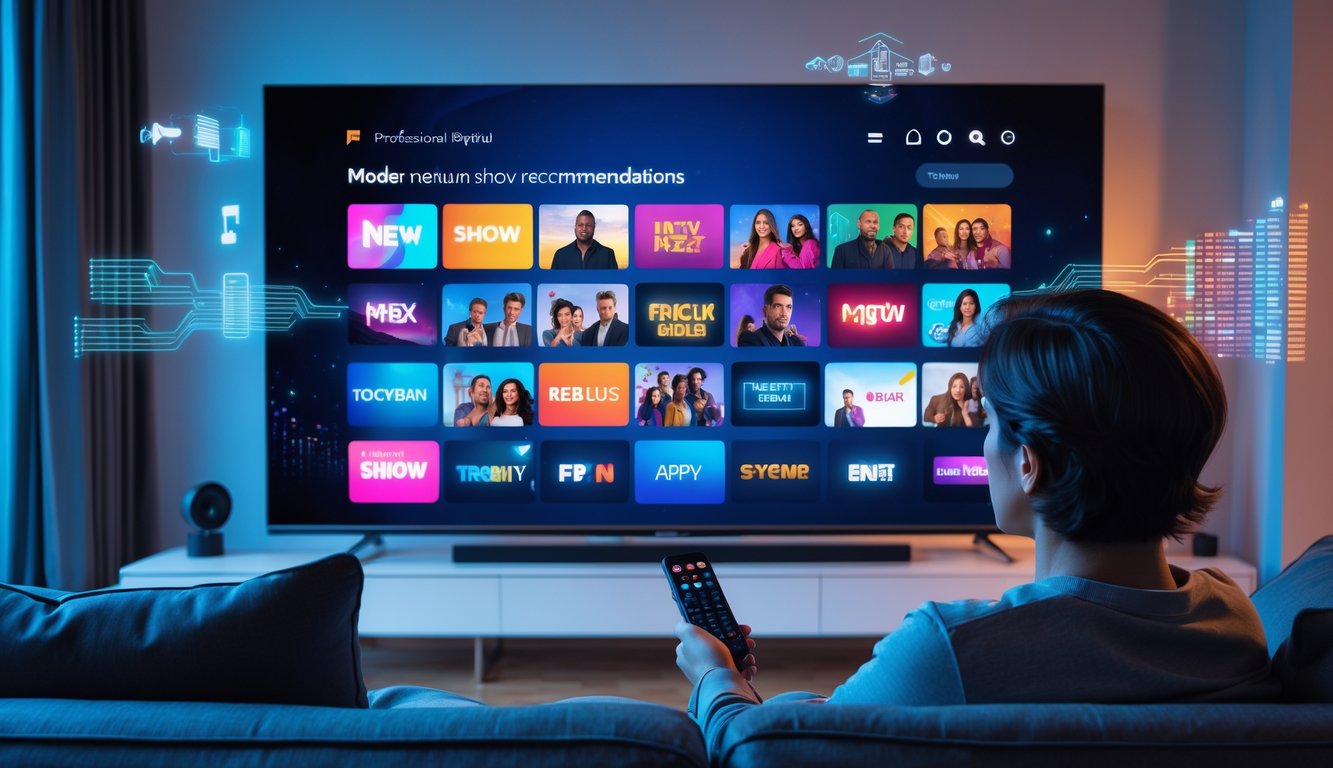
Data Privacy and Ethical Considerations
Jumping between my endless watchlists and whatever the algorithm thinks is “for me,” I keep wondering—what data are they even collecting? Privacy policies are a blur, and the more I try to read, the less I understand. It’s not like they pop up a friendly “hey, can we track your every move?” every time I scroll or pause.
What Data Is Collected by Streaming Apps
Nobody reads privacy settings. I definitely don’t. Netflix, Disney+, all of them just hoover up everything: watch history (duh), but also device fingerprints, IP, location, and even what I almost clicked but didn’t. That’s just the obvious stuff.
A University of Toronto analyst said, “Even how long you hover can become a data point” (Real Results, 2023). Why does skipping an ad mean I get a totally different genre next time? Are they tracking my mood, or just my insomnia? Who knows.
Cookies? Don’t get me started. Those things tie together my phone, laptop, and even my parents’ TV. I once reset my router, and the next show suggestion somehow got even weirder—like they knew I’d moved rooms. It’s not magic, it’s just relentless profiling.
Protecting User Privacy
Want to actually protect your data? Good luck. Opting out is like solving a puzzle with missing pieces—privacy toggles buried three menus deep, if they exist at all. The Cambridge Analytica mess made me rethink ever clicking “I agree” again, but what does it matter? Apparently, 57% of people (Data Privacy Forum, 2024) say they care about privacy, but mostly that just means more unread alerts and a vague sense of doom.
I’ve tried every “limit tracking” switch I could find, and honestly, the recommendations just get more random, not less specific. Two-factor? Sure, if you can remember your backup codes from 2019. I once asked a Spotify engineer if they could erase my embarrassing anime phase from their records—he just laughed: “Data decays, but never really disappears.” Cool.
End-to-end encryption? Not standard. EFF keeps yelling for better laws, but right now it’s just duct tape and hope. I use alternate profiles sometimes just to mess with the system, but the illusion breaks as soon as I log in on my real phone. Maybe if more of us demanded real deletion—like, actual legal deletion—privacy would be more than a checkbox. Or maybe the companies are just waiting us out. We’ll subscribe anyway, right?
Frequently Asked Questions
Half the time I’m scrolling, new shows just materialize—how did these get here? Why do I keep getting British crime dramas when I’ve never watched one in my life? If you’ve ever missed a favorite because it “wasn’t recommended,” yeah, me too. All those weirdly personal thumbnails? Not an accident, even if it feels random.
How do streaming apps recommend new shows to their users?
Basically, streaming apps run everything through algorithms that act like the nosy kid in class, watching everyone and pretending to know your taste. “Collaborative filtering,” “content-based filtering”—whatever, it’s all machine learning chewing up my watch history, every thumbnail I hover over, every time I pause to answer a text.
Netflix claims to have over 1,300 human-labeled micro-genres. Not even joking. They don’t care if I watched something at a friend’s house or just read about it online—my next scroll is forever changed.
What factors influence the visibility of new shows on streaming platforms?
I get suspicious when some random original pops up front and center at 2 a.m. and my queue already has 30 shows. A Netflix data scientist (yes, a real person, shocker) told Wired it’s all about watch time—did you binge, rewatch, pause obsessively?
It’s not just me: if people like me binged some weird show, suddenly it’s my “pick of the week.” Corporate priorities and my actual taste? Never quite match. I saw “Unsolved Mysteries” for weeks, and I hated it.
Can users customize how new content is recommended to them on streaming services?
People think turning on “Kids Account” fixes everything—nope. Curation is mostly an illusion. Scroll past ten vampire romances and, congrats, you’re marked as a vampire fan for eternity. Sure, you can click “thumbs up” or “not interested,” but even Netflix admitted in a blog those signals barely matter compared to what you actually watch.
I tried “reset recommendations” once—immediately, my homepage turned into a graveyard of cartoon dog movies. Most platforms hide any real controls like they’re state secrets.
Are there ways to discover hidden gems that streaming algorithms might not prominently display?
Ever typed “1930s musical” into the search bar? Feels like opening a portal to a secret archive. Algorithms nudge me toward their originals or “because you watched” clones, but one weird keyword and the whole catalog explodes. Advanced filters? Barely exist unless you use sketchy browser extensions. CMU had a list of hacks, but half of them are broken now.
Honestly, word of mouth works better. Reddit’s r/BestOfNetflix is full of buried miniseries with insane Rotten Tomatoes scores. Or the “secret codes” trick—totally real, and surprisingly effective.
What role do user reviews and ratings play in shaping streaming recommendations?
Remember when Netflix had five-star ratings and you could at least pretend your opinion counted? Now it’s double-thumbs or nothing. I see “97% match” sometimes, but after talking to app product managers, even they admit public ratings are mostly just window dressing. Algorithms care more about what gets rewatched, not what gets five glowing reviews.
Tech journalists say Amazon still uses user reviews, but only for some genres. One brutal review can tank a show’s visibility, but a hundred “meh” reviews? Nothing happens. Make it make sense.
How often do streaming service recommendation algorithms update to include the latest shows?
Honestly, does anyone really know? One minute I’m convinced “new” means “just premiered in some random country and, surprise, now it’s dumped in my queue.” I’ve heard a few data engineers ramble on podcasts—none of them sound certain. Sometimes it’s daily, sometimes weekly, sometimes I think they just forget. Depends if it’s a mega-hyped thing or some obscure docuseries nobody asked for.
I’ll watch five minutes of something everyone’s talking about, and suddenly my whole homepage goes off the rails. Netflix and Disney+ seem to flip the switch overnight, but Amazon? Feels like they’re running on dial-up—stuff takes forever to show up. I even tried emailing Hulu once (don’t judge). Crickets. Maybe there’s just some sleep-deprived intern in a basement somewhere, randomly updating things whenever they remember. Who knows?



